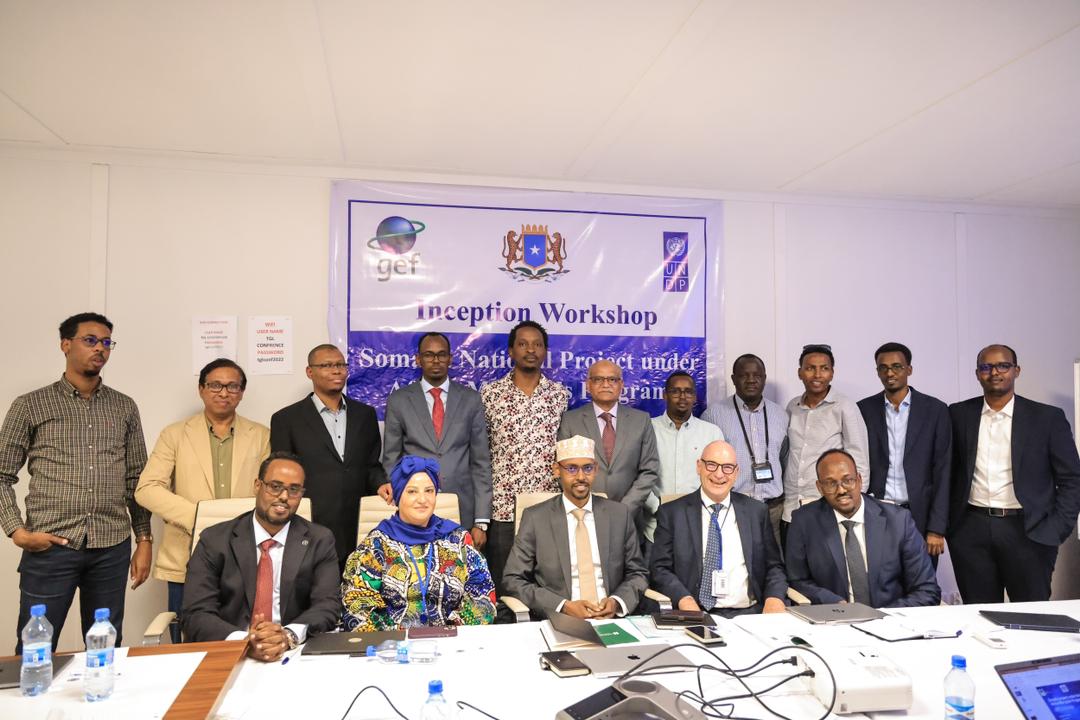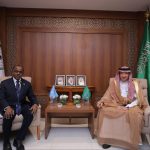Mogadishu – The United Nations Development Programme (UNDP) and the Federal Government of Somalia launched today the Somalia project of the Africa Minigrids Program (AMP) to increase access to electricity and bring new development opportunities to rural communities while contributing to putting the country on a sustainable development path.
Funded by the Global Environment Facility (GEF), the Africa Minigrids Program is a regional energy access program led by UNDP in partnership with Rocky Mountain Institute (RMI) and the African Development Bank. The AMP works with 21 countries in Sub-Saharan Africa to promote scaled-up investments in solar minigrids to increase access to sustainable, affordable energy while supporting climate action. The AMP Somalia project will be implemented by the UNDP Country Office in Somalia in partnership with the Ministry of Environment and Climate Change, Ministry of Energy and Water Resources and the private sector.
“Access to energy is a precondition to development, supporting livelihoods and powering essential services such as education and healthcare,’ said UNDP Resident Representative in Somalia Jocelyn Mason. And 65% of people don’t have access to electricity in Somalia. Yet the appalling drought we are experiencing now only underscores the importance of sustainable, green energy, and Somalia has the potential for plentiful supplies of solar and wind energy.”
Among communities with access to energy, many rely on costly and polluting diesel minigrid systems, owned and operated by an ecosystem of private Electricity Service Providers (ESPs). However, these vital energy service providers have limited access to finance from commercial and state-owned banks. This limits their ability to scale-up through the adoption of innovative models, such as Pay‑As‑You‑Go, through which users pay only for what they consume.
The AMP Somalia project is tailored to the unique nature of the energy sector in Somalia, and as such aims to work with this existing ecosystem of ESPs to enable the hybridization of existing diesel minigrids and to make solar minigrids more competitive and affordable. To do so, it will focus on supporting digital technologies for clean energy and on the institutionalization of multiple initiatives already underway in the country.
“I am delighted that we are here today to expand efforts and cooperation in the Energy sector, because energy is at the centre of Somalia’s economic growth. The Somalia’s National Project under the GEF Africa Mini-grids Program will increase access to clean energy and improve service delivery. GEF and UNDP support will contribute to the achievements of targets envisaged in the power sector master plan.” — H.E. Jama Taqal, Federal Government of Somalia’s Minister of Energy and Water Resources.
Supporting minigrids’ digital transformation through innovative models such as Pay-As-You-Go will be key to promote investments. Institutionalizing capacity building, stakeholder engagement, and the financial mechanisms targeting the shift from diesel to solar technologies in the minigrid sector will help to ensure a durable change in the market.
The AMP Somalia project will start with pilot projects to demonstrate the viability of minigrid hybridization, which will provide electricity to 66,670 people, half of them women, while avoiding nearly 30,000 tCO2eq direct emissions. This will be the first step of the AMP approach in the country, which aims to catalyze a larger, durable transformation of the country’s energy system which will help the country close its energy access gap while enabling a 594,000 tCO2eq of indirect greenhouse gas emissions mitigation.
UNDP modelling estimates that minigrids are the least-cost option to provide electricity to 265 million people in the AMP’s 21 countries, for a total investment opportunity of $US 65 billion. This equates to the construction of 110,000 minigrids, powering 200,000 schools and hospitals and driving economic growth in the region by supporting 900,000 businesses.
Launched at the United Nations Climate Conference COP27 in November 2022, the AMP has
already started rolling out national projects in Nigeria, Eswatini, and Djibouti, with additional national projects to start implementation throughout the year.





